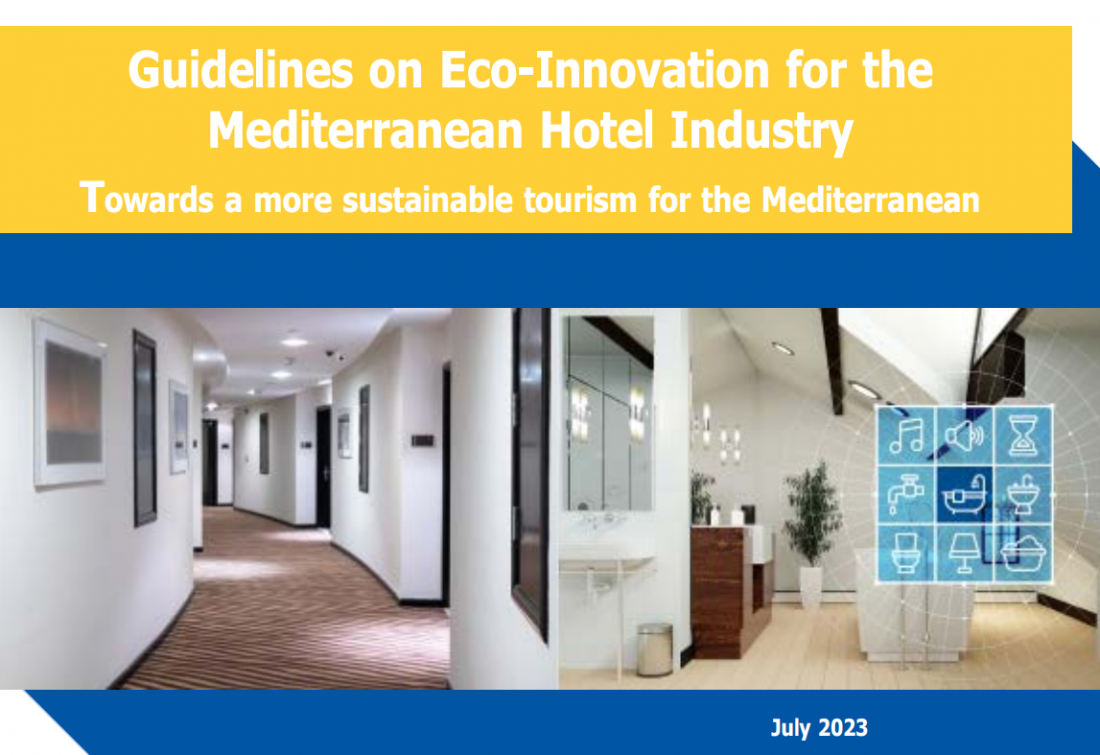GREENinMED releases Eco-Guidelines on the Mediterranean Hotel Industry

Chosen by 260 million tourists each year, the Mediterranean is the number one tourist destination in the world. As traveling gets widespread and “easier”, the hotel sector and the flow of visitors per country continue to develop every year. It constitutes a major economic activity in the Euro-Mediterranean area but also contributes to the emission of greenhouse gases (GHG) and global warming. The Intergovernmental Panel on Climate Change (IPCC) considers the Mediterranean region as a hotspot for highly interconnected climate risks, due to its particular combination of multiple strong climate hazards and high vulnerability.
The need for comfort and satisfaction of the tourists impacts strongly the strategic decisions of establishments owners, particularly towards buildings. Hotel guests tend to modify their use of energy (light, temperature, air, electricity, water, etc.) during their stays and use a much higher amount of energy, transforming the tertiary buildings into energy-intensive facilities. It has been demonstrated that a customer consumes an average of 300 litres of water per night in a hotel compared to 150 litres at home. In this context and as climate change also tends to modify citizens behaviours, particularly in the coastal areas, willing to heat more during winter season and cool during summer, the efficient management of energy resources is a fundamental issue for professionals of the tourism sector in the Euro-Mediterranean area.
The tourism sector is facing the challenge of recovering the figures prior to the COVID-19 pandemic. Public policies tend to support a transition to a more sustainable, responsible and smart tourism, especially in the European Union and at each country national level. Beside rethinking our habits, innovative and sustainable solutions to better manage water and energy management exist and contribute to overcome this problem and save money.
The GREENinMED project funded by the ENI CBC MED Programme from 2019 to 2023, has supported 150 SMES including both tourism establishments and solutions providers, thanks to a consortium of 5 partners from France, Israel and Spain:
- The Official Chamber of Commerce, Industry, Services and Navigation of Spain (Lead partner),
- Capenergies French cluster of the energy transition,
- ARAVA Institute for Environmental studies, - Kinneret Academic College in the Jordan Valley,
- Israel Water Association.
From this transnational experience, Guidelines on Eco-Innovation for the Mediterranean Hotel Industry have been identified. Through a practical guide, GREENinMED aims to help professionals of the tourism sector in the Euro-Mediterranean area, as well as in other regions, to discover and capitalize on the lessons learned by the GREENinMED beneficiaries. The document helps the comprehension and adoption of ecoinnovations applied to water and energy in the tourism sector.
https://www.enicbcmed.eu/sites/default/files/2023-07/GREENinMED_guidelines_vf.pd









